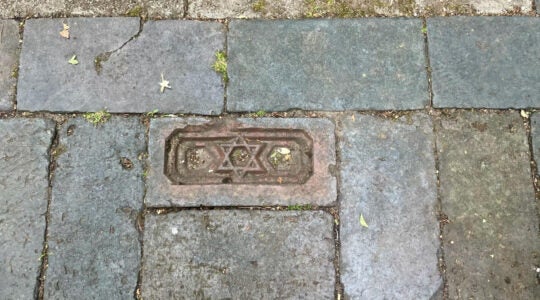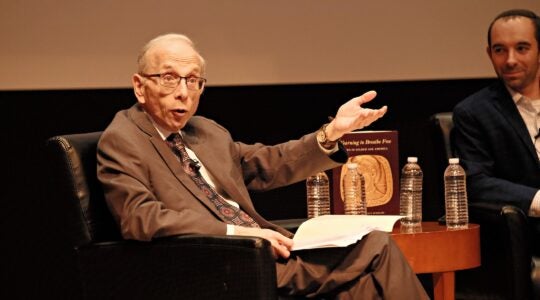When Yeshiva University’s alumni affairs director recently sent me an e-mail inviting me to participate in a ceremony honoring former captains of YU’s varsity basketball teams, it reminded me, many years later, of some of the thoughts and memories I have about playing basketball at Yeshiva (“Captain Of Their Soles,” Dec. 9).
They all start with our unique coach Red Sarachek, a basketball genius with very little patience for us very mortal athletes. Probably my low moment with him came when he, a secular Jew, in the middle of one of his tirades about our failings, suddenly turned to me and said: “As if things aren’t bad enough, now Jake (that’s what he called me) is eating an orange without a yarmulke.”
He was a good and proud Jew who in his later years would send me compliments about something the Anti-Defamation League or I did to stand up for the Jewish people.
But he was first and foremost a basketball man, which I saw early on. When I entered YU, I had decided not to join the team. He called me into his office, and I explained that I was not playing because my father, a rabbi, wanted me to study and learn. He then called my father and a conversation ensued between two good people talking past each other because they came from different worlds: Sarachek pleading with my father that playing basketball would help me mature and my father thinking that if I learned
some Talmud I might grow up.
The experience of representing Yeshiva on the basketball court later became very relevant to the work I came to be engaged in for ADL over many years. We took special pride in surprising many of our opponents, who somehow assumed that Orthodox Jews would not be able to be competent athletes.
This bifurcation and sometimes tension between the drives for uniqueness and normalcy are what the State of Israel is all about.
As someone who has spent many years explaining Israel to diverse audiences around the world, this theme of uniqueness and normalcy coexisting in Israel was one that was not new at all. I had a great deal of comfort in explaining both sides. One reason was that my experience of playing for Yeshiva made this duality real and immediate.
In the final analysis, my father and Red Sarachek were both right.
Deputy National Director of the Anti-Defamation League
The New York Jewish Week brings you the stories behind the headlines, keeping you connected to Jewish life in New York. Help sustain the reporting you trust by donating today.




